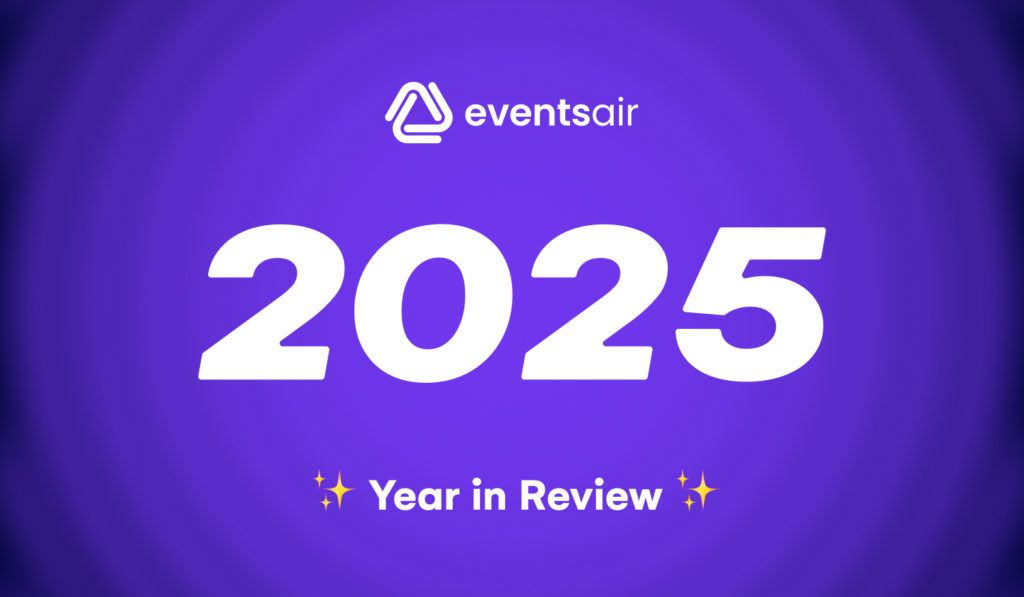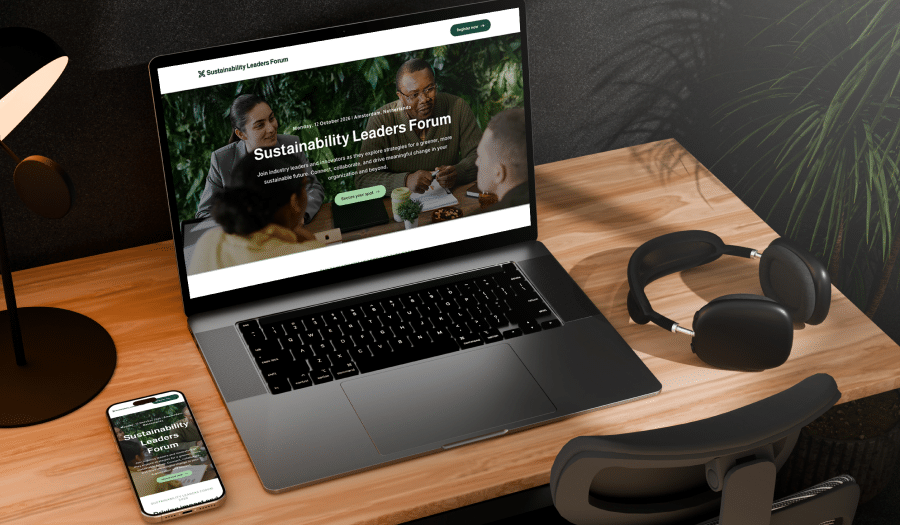
In most aspects of life, they say that knowledge is power. That also holds true in the world of events and conferences – particularly if you undertake the right cadence of post-event reports and analysis.
In fact, when it comes to event reporting and analysis, success starts well before the post-event stage. If you build a well-designed event from the very beginning, where you have designed your event knowing what type of data and reports you will want to see, you will avoid many pitfalls and challenges.
At the end of the day (or in this case, the end of the event), the key to successful event planning comes down to one simple truth – you must be able to report and document the success or failure of your event, based on the right metrics, outcomes and key performance indicators.
And that means choosing the right event tech partner – one who is able to support you with a robust suite of reporting and analytics tools.
In this article, we’ll take a deeper dive into event reporting and analytics: what it is, why it’s important and how you can do it more successfully as a modern event planner.
What is event reporting?
An event report is something you create after the event to prove it was successful, and whether or not it met the goals outlined in the original event plan or proposal. Sounds pretty straightforward, right?
Well, whether you are reporting to your clients, your team, or to yourself, you need to find a way to pull together the hundreds of streams of data that made up your event and create a report or series of reports. This will ensure you can effectively analyze the success or failure of your event.
This information comes in many forms, and all of it is critical:
- Financial reports
- Audience engagement reports
- Content performance reports
- Demographic reports
- Profile and marketing reports
- Registration reports
- Function reports
- Accommodation reports
- KPI and other statistical reports
- Cloud and web analytical reports
- And more.
Why do event reports matter?
Event reports matter for one simple reason: they provide clear, documented proof of the outcomes that your event has delivered. These outcomes can then be communicated clearly to the C-Suite, sponsors and other key stakeholders.
If it’s measured and analyzed accurately, then it’s hard to argue with the data. If you haven’t collected quality data about your event, you won’t be able to produce quality reports.
Or, to put it more succinctly – garbage in, garbage out. It’s all about the data.
Yet another reason why it’s so critical to choose the right event tech solution from the outset of your planning process!
Aside from being able to demonstrate your success to key stakeholders, there are several other benefits to event reporting, including:
- Attract future business: When you have measurable outcomes and results, you can use them to attract future clients, sponsors and partnerships.
- Improve future events: Armed with the right data, you’ll have actionable insights about how you can improve future events
- Identify efficiencies: Data is the key to understanding where you can be more efficient, where you can standardize your processes and where you can make cuts in future planning processes.
What do you need for an event report?
To get started with post-event reports and analysis, you need two essential components: data, and the right technology to collect and analyze it. Let’s take a look at each of these now.
1. Data
If you don’t collect the data from the beginning of the event planning process, in a format useful to you, you won’t be able to pull quality reports before, during and after your event.
In most universities with meeting management programs that are educating our future event organizers, the role of quality data is just a small part of the curriculum. More and more educators, however, are realizing the need to teach the fundamentals of reporting and data is critical to teaching students how to be successful event planners.
It’s essential that you understand the data you will need and the reports you will be running during and after your event, right from your initial event design.
Not only do you need to ask the right questions during the registration process, but you need to also make sure the right questions are required (not optional) and which profile or background questions will help you evaluate your conference demographic. Most importantly, you need to understand how you will measure the success or failure of your program.
2. Reporting technology
Are you exporting data from programs such as Excel to create your reports? This is a difficult task, as spreadsheets are not designed for detailed reporting. Graphs and charts, sure, but beyond that, the work you will need to do can be prohibitive.
Even more importantly, once you export your data, it is immediately out of date, which basically eliminates the value of the report.
Does your registration or event management platform let you sort and filter data for truly customized reports? Not all systems are equal, and this can make a significant difference in how you view and analyze data from your event.
For example, let’s say you want to view a report of all Directors or VPs who attended your conference, attended the session on Corporate Financial Standards, and held a certification in financial auditing. This data would typically be found in four different areas of your event database:
- Registration codes to indicate attendance at the event
- Demographic data indicating position in their company
- Session tracking to determine if they attended the session on financial reporting
- Marketing or profile data indicating they hold a certification in financial auditing.
As you can see, you need a data management and reporting platform that allows for multiple levels to search, filter and display data on four different criteria, residing in four different areas of your database. These are the types of post-event reports that clients often ask for, and you really don’t want to be exporting data to a spreadsheet and manually building such a report – an effort that can take a few hours or even days to make happen.
How to write a post-event report
When it comes to creating your event report, more is not necessarily better. Often, your clients and other stakeholders will be time-poor, so it’s best to include the highlights in brief, rather than pages and pages of detailed analysis.
These are the essentials we’d recommend you include, in two distinct sections:
Section 1: Overview
- Event basics: Name, data and location of your event
- Team: Key members of the team and their roles, plus contact information if relevant
- Event objective: A high-level overview of what the event was trying to achieve
- Attendee breakdown: Data on who attended the event, perhaps presented as a pie chart or other visual
- Agenda: A high-level recap of the structure of the event
Section 2: Numbers and reporting
- Financial: Did you make money or come in under budget?
- Attendees: A deep-dive on attendee and registration numbers, highlights from post-event survey
- Sales: Leads delivered, client meetings booked, etc
- Exhibitors: Appointments booked, foot traffic, meetings per exhibitor
- Marketing: Social media highlights, clicks/opens on EDMs, total reach
- Content: Sessions with highest attendance, post-event view/downloads
- Sponsorship: Breakdown of sponsorship numbers, sponsor satisfaction
Once you’ve completed these two sections, it’s always a good idea to round up your event report with a brief summary and recommendations for the future, if any.
How can our post-event services help with your next event?
At EventsAir, we can help you extend the life of your event with robust reporting and analysis features and other post-event tools. We make it easy to maximize your investment, share your content, and drive further ROI for sponsors and exhibitors with a suite of post-event features.
Detailed reporting on attendance, budgeting, and more, combined with feedback from surveys and polls, can help you understand what went well and where you can improve.
We have one simple mission: to help event planners deliver the WOW in their events with the world’s most powerful event management technology. We’ve delivered some of the world’s biggest events, and we’d love to help you too.
If you would like to understand how we can help you unleash the power of data and analytics on your next event then schedule a demo with one of our team members today.
Event Data & Analytics | Event Planning & Management | Event Technology & Apps
See EventsAir in action
Discover why 12,000+ event professionals trust EventsAir to deliver effortless events, every time.




